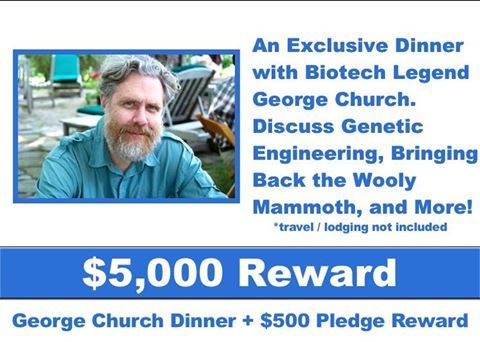Dr. Oliver Medvedik, Dr. Aubrey de Grey, and Dr. Alexandra Stolzing discuss.
Category: life extension – Page 621

Veritas Genetics Scoops Up an AI Company to Sort Out Its DNA
News from Veritas and remember Veritas are offering a whole genome sequence as one of the rewards in our AgeMeter campaign at Lifespan.io:
https://www.lifespan.io/campaigns/agemeter-biomarker-scan/#reward_12
“On August 3, sequencing company Veritas Genetics bought one of the most influential: seven-year old Curoverse. Veritas thinks AI will help interpret the genetic risk of certain diseases and scour the ever-growing databases of genomic, medical, and scientific research.”
The Future of Politics Will Focus on Transhumanism
As one of the most visible 2016 presidential candidates—and now as a leading 2018 contender for Governor in California—Zoltan Istvan has been the “Science Candidate,” traveling around America to discuss the issues of transhumanism and radical longevity that are transforming humanity. Soon the issues of AI, genetic editing, designer babies, bionic organs, automation, and neural prosthetics will challenge and dominate political discourse. America must embrace radical science with bold polices.
Elena Milova of LEAF asks whether senolytic therapies for senescent cells could have an adverse effect on the number of functional stem cells in the body
Dr. Alexandra Stolzing and Dr. Aubrey de Grey discuss.
Many people ask us why the government does not seem to fund longevity research
Aubrey gives his opinion, and explains how audience members can help support research at SENS.

Transforming T Cells to Regulate the Immune System
An interesting new study has demonstrated a method to reprogram specific T cells. Much like researchers have been experimenting recently with macrophages and making them change into an anti-inflammatory rather than a proinflammatory type, the team here has achieved similar results with T cells.
As we age the immune system becomes dysfunctional, either due to immune cells become overactive and creating too much inflammation or by cells that suppress the immune system such as senescent cells that inhibit cell function.
A dysfunctional immune system leaves us vulnerable to diseases and chronic levels of inflammation from excessive immune responses prevent tissue regeneration and wound healing. The researchers here have discovered how to target pro-inflammatory T cells that increase the immune response and inflammation and change them into anti-inflammatory cells that suppress the immune response, and vice versa.

Can we, as adults, grow new neurons? YES: Sandrine Thuret
Can we, as adults, grow new neurons? Neuroscientist Sandrine Thuret with a background in food science, molecular, cellular, behavioural and ageing biology says that we can, and she offers research and practical advice on how we can help our brains better perform neurogenesis—improving mood, increasing memory formation and preventing the decline associated with aging along the way.
“Can we, as adults, grow new nerve cells? There’s still some confusion about that question, as this is a fairly new field of research. For example, I was talking to one of my colleagues, Robert, who is an oncologist, and he was telling me, “Sandrine, this is puzzling. Some of my patients that have been told they are cured of their cancer still develop symptoms of depression.” And I responded to him, “Well, from my point of view that makes sense. The drug you give to your patients that stops the cancer cells multiplying also stops the newborn neurons being generated in their brain.” And then Robert looked at me like I was crazy and said, “But Sandrine, these are adult patients — adults do not grow new nerve cells.” And much to his surprise, I said, “Well actually, we do.” And this is a phenomenon that we call neurogenesis.”

We Should Be Optimistic But Not Complacent About Progress
In the last year or so we have seen remarkable progress with a number of interventions that target the aging processes to prevent and treat age-related diseases.
Senescent cell clearance has enjoyed lots of media attention and is entering human clinical trials later this year with Unity Biotechnology. We have LysoClear from Ichor Therapeutics moving towards the clinic with a therapy based on the LysoSENS approach advocated for by the SENS Research Foundation, which seeks to treat age-related blindness caused by the accumulation of waste products in the retina cells of patients. Dr. David Sinclair is moving into human trials this year with a therapy aimed at repairing DNA damage, one of the main reasons we are thought to age.
We have had amazing progress in immunotherapy, where the immune system is taught to detect cancer and other diseases far more efficiently. For instance, immunotherapy has been used to allow the immune system spot cancer that uses the same “Do not eat me” signals that healthy cells use to avoid destruction.

Get the stylish da Vinci Vitruvian Man T-shirt and put the sexy into science, plus you get a cool sticker and button
https://www.lifespan.io/campaigns/agemeter-biomarker-scan/#reward_4
The ultimate bundle for those who want the world to see that they support science. This is just one of the fantastic rewards available in the AgeMeter campaign on Lifespan.io, support science today and make da Vinci proud!